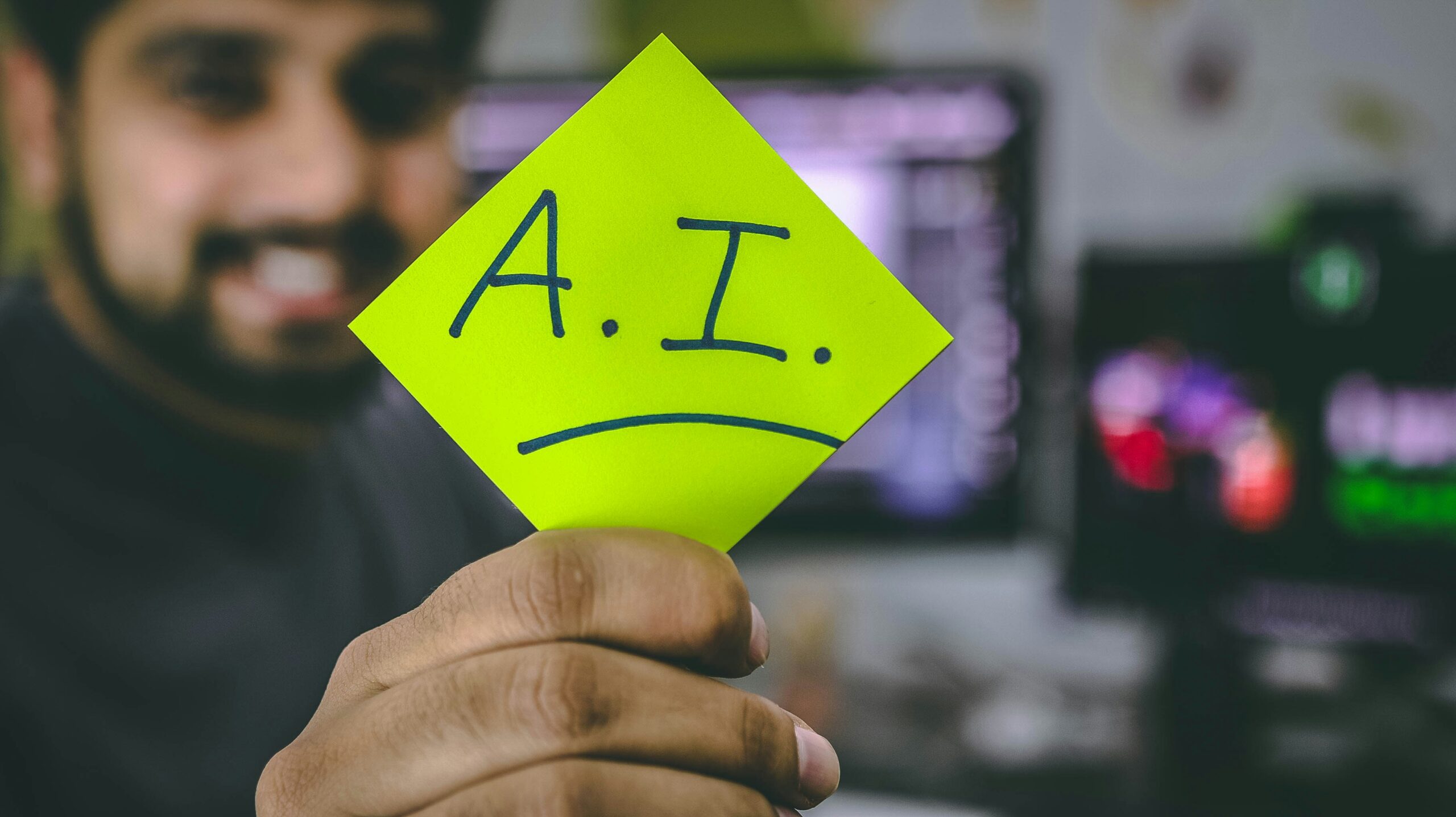Artificial Intelligence (AI) is no longer just a concept found in science fiction novels and movies. It’s woven into the fabric of our daily lives, from the way we communicate to how we shop and even manage our health. As technology progresses at an unprecedented pace, understanding AI’s evolution becomes essential for everyone.
From humble beginnings in algorithmic calculations to complex neural networks mimicking human cognition, AI has transformed dramatically over the years. It’s not merely about robots taking over tasks; it’s about enhancing our capabilities as humans. As we delve deeper into this fascinating realm, we’ll uncover both its benefits and challenges.
Join me on this journey to explore how AI impacts our everyday experiences, reshapes industries, debunks myths surrounding its use, and prepares us for future opportunities. The age of artificial intelligence is here—are you ready to embrace it?
The Advantages of AI in Everyday Life
AI brings numerous advantages that enhance our daily routines. From smart assistants like Siri and Alexa to personalized recommendations on streaming platforms, technology adapts to our preferences effortlessly.
In the realm of healthcare, AI analyzes patient data quickly. This leads to faster diagnoses and more effective treatment plans. Imagine receiving tailored health advice based on your unique genetic makeup.
Shopping experiences have also transformed thanks to AI. Virtual fitting rooms and chatbots make online shopping seamless and responsive. Customers can enjoy a more engaging experience without feeling overwhelmed.
Moreover, productivity tools powered by AI help manage tasks efficiently. They remind us of deadlines or automate mundane tasks, allowing us to focus on what truly matters in our lives.
Navigation apps use AI algorithms for real-time traffic updates, helping commuters save time and avoid congestion while traveling from one place to another.
The Risks and Challenges of AI Implementation
As AI technology rapidly advances, the risks associated with its implementation become increasingly evident. One major concern is data privacy. With machines processing vast amounts of personal information, the potential for breaches and misuse grows.
Bias in algorithms poses another significant challenge. If AI systems are trained on flawed or unrepresentative data, they can perpetuate existing inequalities and stereotypes, leading to discrimination in critical areas like hiring or law enforcement.
Moreover, there’s the issue of job displacement. As automation takes over repetitive tasks, many fear that workers will be left behind without opportunities for retraining.
Regulatory frameworks struggle to keep pace with innovation. Without clear guidelines and policies, organizations may navigate this new terrain haphazardly—an approach that could lead to unforeseen consequences impacting society at large.
Examples of AI in Action
AI is making waves across various sectors, transforming how we live and work. In healthcare, predictive algorithms analyze patient data to foresee potential health issues. This leads to early interventions that can save lives.
In retail, chatbots enhance customer service by providing instant assistance at any hour. They handle queries efficiently while freeing up human agents for complex tasks.
Smart home devices like thermostats learn our preferences over time. They adjust temperatures automatically, contributing to energy savings and comfort.
Financial institutions utilize AI for fraud detection. Machine learning models spot unusual patterns in transactions, alerting services before damage occurs.
Even in entertainment, streaming platforms recommend shows based on user behavior. This personalized experience keeps viewers engaged longer and helps discover hidden gems.
Each of these examples showcases the tangible benefits of AI today—bridging gaps between technology and daily needs effortlessly.
How AI is Changing Different Industries
AI is making waves across various industries, transforming how businesses operate. In healthcare, algorithms analyze patient data to identify diseases earlier and recommend personalized treatments. This precision medicine approach enhances outcomes significantly.
Retail has also felt the AI influence. Chatbots improve customer service by providing instant responses to inquiries. Machine learning analyzes consumer behavior, optimizing inventory management and boosting sales strategy.
In finance, AI automates processes like fraud detection and credit scoring, leading to quicker decisions while minimizing risk. Algorithms can predict market trends with remarkable accuracy.
Manufacturing benefits from smart robotics that streamline production lines, reducing human error and increasing efficiency. These systems adapt in real time to changing demands.
Education isn’t left behind either; AI tailors learning experiences for students based on individual progress. Personalized tutoring ensures no one gets left behind in their pursuit of knowledge.
The landscape is evolving rapidly as each sector embraces these advancements.
Debunking Common Misconceptions About AI
Many people fear that AI will replace human jobs entirely. In reality, AI is more about augmentation than elimination. It enhances our capabilities, allowing us to focus on complex tasks while handling repetitive ones.
Another common myth is that AI can think and feel like humans. While it can process data and learn patterns, it lacks emotions or consciousness. It’s a tool designed for specific functions.
Some believe AI operates without any oversight. However, developers must regularly monitor algorithms to ensure they function ethically and accurately.
Moreover, the idea that all AI systems are equally advanced is misleading. There’s a vast range of technologies in this field—some are simple automation tools while others are cutting-edge models capable of sophisticated analysis.
Understanding these misconceptions helps demystify AI and encourages a more informed dialogue about its role in society today.
Preparing for the Future with AI: Education and Job Opportunities
As AI continues to reshape industries, the importance of education cannot be overstated. Embracing new technologies and methods is vital for future job seekers.
Educational institutions are adapting their curricula to include AI-related subjects. Courses in data science, machine learning, and robotics are becoming more common. This shift equips students with skills that align with market demands.
Beyond traditional schooling, online platforms offer numerous resources for self-learners. Websites provide courses on coding and AI fundamentals tailored for all skill levels.
Job opportunities are evolving too. Roles in AI development, ethics consulting, and data analysis are on the rise. Even fields like healthcare and finance seek professionals who understand AI’s potential.
Staying ahead means being proactive—whether through formal education or personal exploration of technology trends. The landscape is changing rapidly; those prepared will likely thrive in this new era driven by artificial intelligence.
Ethical Considerations with the Use of AI
As AI technology advances, ethical considerations come to the forefront. These issues can shape how society interacts with machines.
One significant concern is bias in algorithms. If data fed into AI systems reflects societal inequalities, the outcomes may perpetuate those biases. This raises questions about fairness and justice in decision-making processes.
Another important aspect is privacy. With AI’s ability to analyze vast amounts of personal data, maintaining individual privacy becomes increasingly challenging. Striking a balance between innovation and respecting user rights is essential.
Moreover, accountability remains a pressing issue. Who is responsible when an AI system causes harm? Establishing clear guidelines will be crucial as these technologies become more integrated into our lives.
There’s the impact on employment. As automation increases, job displacement could lead to economic disparities if not managed properly. Addressing these challenges requires thoughtful dialogue among stakeholders from various sectors.
Embracing the Potential of AI for a Better Future
As we navigate through the age of artificial intelligence, it’s clear that embracing its potential can lead to significant improvements in our lives. AI has already begun to transform various aspects of daily living. From smart home devices that enhance convenience to advanced healthcare solutions that save lives, the benefits are undeniable.
The future holds even more promise. With continuous advancements, AI is set to revolutionize industries and create new opportunities for innovation. By fostering a culture of adaptability and curiosity, society can harness this technology’s strengths while addressing any associated challenges.
Education will play a pivotal role in preparing individuals for an AI-driven world. Emphasizing STEM subjects alongside critical thinking skills will enable future generations to thrive in careers shaped by technological progress.
Moreover, discussions around ethical considerations must remain front and center as we integrate AI into our systems. Responsible development and implementation ensure that this powerful tool serves humanity positively.
By actively engaging with these changes instead of resisting them, communities can build a future where human potential aligns seamlessly with artificial intelligence’s capabilities. The journey ahead is filled with possibilities—both exciting and daunting—but one thing is certain: together, we have the power to shape how AI enhances our world for the better.














